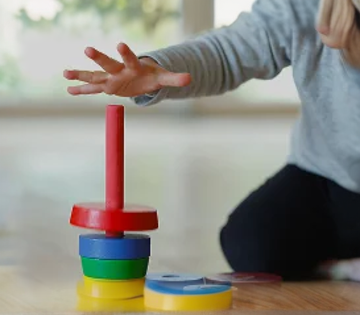
For Individuals
Making Mental Health Support Accessible for All

At ManoAadhar, we understand that mental well-being is an ongoing journey. That’s why we offer affordable services, so more individuals can access the care they need without financial strain.
We also actively engage with the wider community through support groups and mental health awareness programs, helping people connect, share, and grow together

Counselling and Therapy
Therapy and Counseling is provided for children and adults for conditions such as stress, anxiety, depression, psychiatric conditions and relationship issues and family therapy. Our experts are trained in Cognitive Behavior Therapy and Rational Emotive Behavioral Therapy and other scientific and empirical methods.
FAQ
Q. What is Counselling?
Counselling is a process of where the client and counsellor work towards changing behaviours and set realistic goals. Counselling helps individuals to identify problems, gain an insight and explore ways to deal with the problems. Counselling can target individual issues, relationship issues, career development etc.
Q. What is therapy?
Therapy is a collaborative relationship between the client and therapist. It helps the client to change their own attitudes, values, thoughts, accept themselves, overcome barriers and reach their goals. Therapy is used with people who have psychological disorders or severe distress.
Q. Why does someone seek therapy & counselling?
When a person experiences distress and unable to function efficiently then he/she seeks counselling. Counselling is an effective way to gain more insight and work effectively through multiple stressors. It helps client explore ways of coping with difficult situations. It helps client to get to the root of their problem and change their patterns of thinking which cause distress.
Q. Does the therapist prescribe medicines?
A counsellor is not authorised to prescribe any medications. However, if the client is extremely emotionally disturbed or showing any symptoms which cannot be dealt with counselling alone then the psychologist may refer that person to the psychiatrist. A psychiatrist can prescribe medications. Psychiatrist may similarly refer a client to a psychologist depending upon the nature of problem.
Q. What is the duration of each session?
Generally, the session would take up to 45 minutes to 1 hour
Q. How many number of sessions are required to complete the therapy process?
Depending upon the nature of client’s problem the therapy sessions are planned by the respective psychologist.
FAQ
Q. What do you mean by child with special needs?
Children with special needs have difficulties such as physical, emotional, behavioral, and learning that causes an individual to require additional or specialized services in education and overall development.
Q. What are the types of children with special needs?
Learning Disabilities (LD), Attention Deficit Hyperactivity Disorder (ADHD), Autism Spectrum Disorders (ASD), Intellectual Disability.
Q. What is Learning Disability (LD)?
Learning disability is neurological based cognitive disorder that affects a person’s ability to reading and writing, writing coherently, speech, listening capacity, solving mathematical problems, grammar, and/or organising other information. The most common LD are Dyslexia, Dysgraphia, Dyscalculia
Q. What is the difference between having learning issues and having a learning disorder?
Every individual’s brain works differently. Some people may take a little longer to read than others. This refers to learning issue that can be resolved with a little practice. When a child falls behind their peers, struggling to understand information despite the attempts of remediation, this can be an indication of learning disability.
Q.How do I know if my child has a learning disability or is just a “slow” learner?
Monitoring child’s academic achievement from an early age can help to identify if a child is showing signs of LD. Further discussing with a professional can determine if there is a need for further evaluation and the type of evaluation. Evaluation is done by qualified and certified professionals. An evaluation by a doctor is also essential
Q.Is there a cure for learning disability?
There is no complete cure for these disabilities, but treatment and intervention can be very effective in helping children grow up to be well-adjusted independent individuals.
Q.Does a learning disability mean that my child is less intelligent?
A learning disability doesn’t mean that the child is less intelligent, it just means that the child processes information differently compared to other children. Children with LD have equal potential to succeed and have their own unique sets of skills that need to be developed and used.
Q.If my child diagnosed as LD, will they able to continue school?
Yes. They will be able to continue schooling. With proper remediation, intervention and monitoring academic performance the child can cope well with this difficulty.
Q.If my child diagnosed as LD, will they get support from school?
Yes. With the proper certificates from doctors from government recognized centres or hospitals the child is entitled to get support in academic settings and examinations
Q.Is there anything I can do to help my child with their learning disability?
As a parent the priority is to make sure that the child is receiving additional support and a right educational environment.
Q.What is ADHD and ADD?
It is a common neurodevelopmental disorder diagnosed in childhood that sometimes lasts in adulthood. Children with ADHD may struggle to pay attention, control impulsive behaviours, and can be hyperactive. In a form of ADHD, called ADD, there is no hyperactivity, but the child may show symptoms of inattention, distractibility, and poor working memory.
Q.How is ADHD assessed?
ADHD is assessed through different scales/tests which are administered by qualified and certified professional psychologists. A physical examination by a doctor is also included. There could be other battery of tests that may be necessary
Q.How is ADHD treated?
Treatment involves therapy and medication by professionals. Treatment is combination of psychological counselling, skills training, behavioural therapy, medication and education.
Q.Can ADHD be cured?
There is no complete cure for these disabilities but treatment and intervention can be very effective.
Q.If my child diagnosed as ADHD/ADD, then will he/she able to continue school?
Yes. He/she will be able to continue schooling. With proper remediation, intervention and monitoring academic performance the child can cope up with this difficulty.
Q.What is Autism?
Autism is a complex mental condition and lifelong mental disability that typically appears during early
childhood. It impacts a person’s social skills, relationships with other people, communication and selfregulation.
Q.How is Autism treated?
Early recognition, and based on the nature of the problem, various types of therapies are available to help in enhancing skills- behavioural therapy, family therapy, speech therapy, occupational therapy, play therapy, art therapy, sensory integration therapy, etc. A combination of therapies along with medications may reduce autism symptoms and support development and learning.
Q.Can Autism be cured?
There is no complete cure for these disabilities but treatment and intervention can be very effective.
Q.What is Intellectual Disability?
Intellectual Disability involves problems with general mental abilities that affects intellectual functioning and adaptive functioning. There are degrees of intellectual disabilities from mild to severe
Q.How is Intellectual Disability assessed?
IQ and other testing indicate the presence of intellectual disability.
Q.How is Intellectual Disability cured or treated?
While there is no cure for intellectual disability, early intervention, behavioral and family therapy,
Physiotherapy, Occupational therapy, Speech therapy, Special Education may support development and
learning and help the individual to function independently based on the degree of the severity of disability
LD & Special Needs-Child Psychology
We do LD testing for children, testing for autism and other childhood conditions. We have a panel of qualified psychologists and special educators. We work with schools to help provide special education needs to your students.


Psychological Assessments
We provide assessments such as personality testing, aptitude testing, clinical assessments, and neuropsychological assessments.
FAQ
Q. What is Psychological Assessment?
Psychological assessment comprises of using standardised tools for screening, diagnosis or evaluation of thoughts, emotions, behaviours, personality, intelligence, aptitude etc. to determine interventions or course of treatment to help the client. It does not require a person to visit a specific lab and get the tests done. These assessments don’t require a person to prepare for anything
Q. Why is Psychological Assessment important?
Psychological Assessments provide insights to the clients regarding their psychological functioning and/or mental health needs. They help the psychologists to better understand the client’s problem, and arrive at an accurate diagnosis and develop a treatment plan.
Q. What is the process of Psychological Assessment?
A psychologist takes a case history of client to understand which areas need to be assessed. Accordingly, a battery of tests, screening tests, checklists etc. are administered to the client and scoring and interpretation is done. The psychologist then discusses the varied factors assessed through the test with the client and gives diagnosis and treatment. A psychological test can be a simple paper pencil test or performance test where the client is asked to perform small tasks for e.g. solving puzzles.
Q.Do we need to prepare for any assessment or screening test?
No preparation is required for these tests.
Q.Do we need to prepare our child for IQ testing?
IQ testing doesn’t require your child to go through any study material.
Q.What I can expect after the assessments are done?
After the assessments are done, clients can expect an accurate diagnosis of their problem and a treatment plan which can help to reduce the client’s concern.
Q.What is the duration of the assessment session?
Depending upon the test and client’s problem, an assessment can take anywhere from 15 minutes to couple of hours.
Q.What is the cost of these assessment?
Depending upon the type of tests and checklists used, the cost may vary.
FAQ
Q. What is career counselling?
Career counselling is a process through which clients get an understanding about their interests, personality and aptitude. A career counsellor conducts these assessments and based on the report he/she helps the client to reach to their top career options best suitable to them.
Q. Why is career counselling important?
Career counselling helps clients explore their potential and also the best options available for a career. Without this self-awareness along with an understanding of one’s suitability for various occupations, we may feel confused, lost and not perform to our best potential.
Q. When should career counselling be done?
Career counselling is done at various points in one’s life.
It may first be done between 8th to 10th standard for deciding the broad stream as well as future goals, In college 11th and 12th standard for higher studies and career options, After graduation for firming on a career path. Later for people wish to change their occupations.
Q.What should I expect from career counselling?
You should expect an initial exploration of your likes and interests, values and abilities with the counsellor. Next, once this is done, the counsellor may suggest you take a few assessments to help you understand your aptitudes and personality. Finally, collating all this information along with your specific circumstances like your family background and needs , the counsellor will be able to suggest suitable career pathways for you.
Q.What happens if I don’t agree with the career pathways suggested by the counsellor?
The counsellor’s role is to suggest and guide you along a broad career path, suitable according to various aspects like aptitude, interest, personality, values and other circumstances. It is up to, you to decide whether to take that path or not. The counsellor and you can also explore other options which may not be evident immediately to both.
Q.I have already started working in my chosen field. Yet, I feel something is wrong or missing. Is career counselling still a good option for me?
Most certainly, yes. Talking to a career counsellor will help you figure out what is missing and what you may need to do to gain a satisfying career option.
Q.How long will each session take?
Each session with the counsellor is of 50- 60 minutes.
Q. What is the cost of these session?
Depending upon the tests used the cost may vary.
Q.Can I take these tests online?
Yes, you can take the tests online
Q.Do I need to prepare for these tests?
No, you don’t need to prepare for these tests because they are self-exploratory and tap your potential in an area rather than what you have achieved already. However, you need to be honest in answering the tests as that will help getting accurate results about your personality, aptitude, and interests.
Q.What is the role of parents in the career decision making process of their children?
Parents need to be open to understanding their child’s aptitude and interests in order to be able to help him or her take the best path. They can do their research about the different fields and other factors affecting the career path.
Q.Once I decide my career through this process what will be the next step?
After your career decision, you and your counsellor together can frame the road map for reaching your goal.
Career Counseling & Guidance
Our career guidance experts provide aptitude testing and counseling for career guidance for high school and college students as well as adults who may be looking for career growth options.


Relationship and Marital Counselling
We have experienced counselors who conduct premarital and post marriage counselling. It includes working with a therapist to explore issues in relationships, work on their communication, improve interactions, and resolve conflicts.
FAQ
Q.What is relationship and marital counselling?
Relationship and marital counselling is a form of counselling which includes premarital and/or post marital counselling for couples. It includes working with the clients to explore issues in their relationships, work on their communication, improve interactions and resolve conflicts.
Q. How long does each session last?
The therapist will have combined sessions with the couple and with each partner separately to gain an insight into the issue. Depending upon the concern a single session may last from 45 minutes to 1 hour.
Q. How is my privacy protected?
The information you share with the therapist is kept confidential as per the institute’s policy and work ethics. Information given by one of the partners is shared with the other partner through consent
Q. How can someone outside my relationship really help me?
A therapist is a person who views the situation in an unbiased manner and helps you to gain insight into the actual issue in the relationship. The therapist will work with you to explore and understand each other and resolve the existing concerns.
Q. Why see a therapist when I can talk to my friends?
A friend is a person who can be biased at times and can give advice which may be emotionally driven as he/she is your friend. Additionally, a friend may not perceive the underlying issues or other factors that may be affecting the relationship. A therapist is a trained professional who functions in an unbiased manner, has the required knowledge and training in psychology and human dynamics, and helps you to reflect in your problem in more rational way.
Q. Does marriage counselling work?
Marriage counselling deals with varied issues ranging from work related issues, compatibility issues, unrealistic expectations from each other, domestic abuse, and many other issues. Counselling in these areas works when both partners work equally with the therapist, have a common goal towards their relationship to work on the issues and create a happy relationship.
Q. What can we expect from couple’s counselling?
In couples counselling you gain a new perspective about each other and relate in a better manner to each other.
FAQ
Q.What is support group?
A support group is a non-judgemental space for expression. Here people going through similar mental health conditions come together and share their experiences. Through the shared experiences people can learn other ways of coping in day to day life.
Q. What is the structure of Support Group?
Support group sessions are usually conducted in person or online and usually led by a facilitator which can be a psychologist or a social worker. The sessions are conducted twice a week or month depending upon the need of the members. Activities are also conducted to help the members explore more ways of coping.
Q. What kind of support will I get in the support group?
Support group can help client get information about the diseases, coping mechanisms, sense of belongingness with the ones who are going through similar problems. Talking with people going through similar problems helps to manage the heavy emotions attached with the illness. Through the shared experiences people can learn more and help other people.
Q. Do I need to share my story? Is it a safe place to share my experience?
The purpose of the support group is to share experiences. So any experience that the client is comfortable sharing can be shared in the group. This will help the other members in a way as they learn from each other’s experiences.
Support group information is confidential and remains in the group itself. Nothing is shared outside for any other purpose.
Q.What is the cost of these support group session?
Most of the time support groups are free of cost or minimum charges are taken to run the group.
Q.How long the sessions will be conducted?
Generally, one to one and half hour sessions are conducted.
Support Group
We have support groups for adults who are suffering from anxiety and depression. Support groups are facilitated by trained professionals and meet once in a month or as the support group needs.

